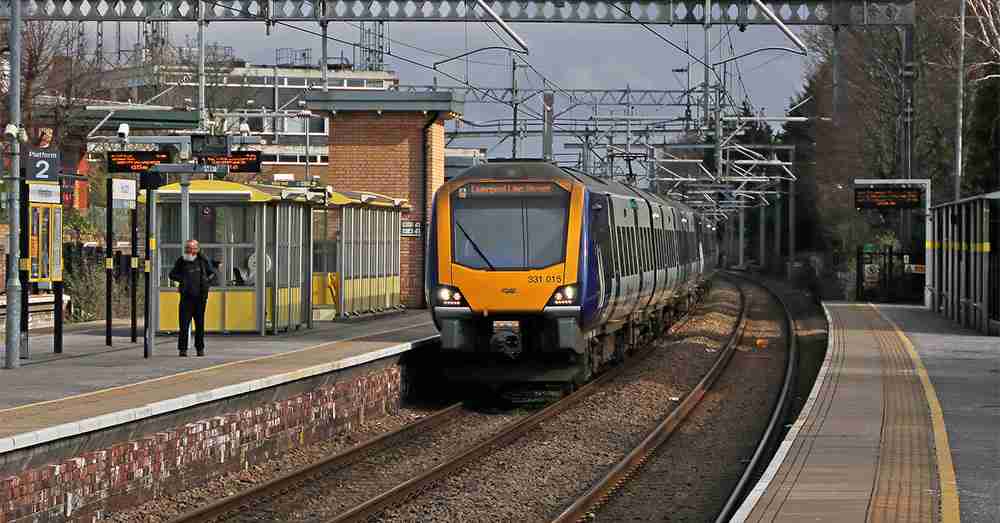When you’re at your local railway station, the word ‘cancelled’ usually triggers a feeling of dread, but on Halloween there was one notable exception. The plan to close most of the ticket offices at stations in England has been binned after more than 750,000 people contacted Transport Focus and London Travelwatch about the proposals.
The suggested closures had been attacked by unions, the media and politicians from all sides. Ticket offices might be the first and last time I find myself on the same side of any argument as Dame Priti Patel, which I think says more about this shambolic cost-cutting plan than it does about either myself or the MP for Witham.
I wrote about my personal objections to the proposed closure of Huyton station’s ticket office back in July and used this as the basis for an email to Transport Focus. An amended version of the piece was also accepted by the Transport Select Committee, a cross-party group of MPs in the House of Commons as evidence in their enquiry on Accessible Transport. A few weeks later, I observed that Ticket Offices had been of vital assistance during a particularly unpleasant journey home from work and highlighted that the public consultation on the closure plans remained open.
As a result of that consultation, the Department for Transport (DfT) has finally had to admit defeat, with Secretary of State Mark Harper announcing the climbdown by stating that the Train Operating Companies (TOCs) had been had been asked to withdraw the proposals and that the government had made it
“clear to the rail industry throughout the process that any resulting proposals must meet a high threshold of serving passengers. “The proposals that have resulted from this process do not meet the high thresholds set by ministers, and so the government has asked train operators to withdraw their proposals.”
What Mr Harper didn’t say is that many TOCs are directly operated by the DfT’s Operator of Last Resort and that, during ongoing industrial action his department has spent more on compensating the TOCs for not being able to run trains than it would have cost to settle the disputes highlighted by ASLEF and the RMT. These proposals – a ‘slash and burn’ approach to staffing – were being pushed by the DfT to cut costs and the TOCs were given the job of trying to sell them to the travelling public.
Just how strongly passengers objected to the suggested changes can be illustrated by Transport Focus’s statistics for Northern, the operator of Huyton Station. In a comprehensive, 49 page response to Northern’s closure plan, the watchdog confirmed it received 60,339 objections compared to 90 expressions of support. In addition, the body received 258 petitions, including one specific to Huyton which attracted 370 signatures.
Based on these representations and its own analysis, Transport Focus formally objected to Northern’s proposed closures in 15 different ways, citing 11 of them for Huyton. Each TOC covered by Transport Focus has an individual response, specific to its franchise, demonstrating that the watchdog has been thorough in its work, unlike those who suggested the closure programme in the first place.
In a statement on X, formerly Twitter, Rail Delivery Group Chief Executive Jacqueline Starr said:
“These proposals were about adapting the railway to the changing needs of customers in the smartphone era, balanced against the significant financial challenge faced by the industry as it recovers from the pandemic. At a time when the use of ticket offices is irreversibly declining, we also want to give our people more enriching and rewarding careers geared towards giving passengers more visible face-to-face support. While these plans won’t now be taken forward, we will continue to look at other ways to improve passenger experience while delivering value for the taxpayer. Our priority remains to secure a vibrant long-term future for the industry and all those who work in it.”
There are a couple of key phrases to pick out of that quote, specifically ‘significant financial challenge’ and ‘delivering value for the taxpayer’. You see, the elephant in the room is that the privatised, for profit franchise model of railway operation has failed, spectacularly. The Scottish and Welsh devolved Governments took back control of their franchises, while the Inner City East Coast, Northern, South Eastern and TransPennine franchises are all managed by the Operator of Last Resort (in the cases of the East Coast and South Eastern franchises, this is the second time since privatisation that the Government has stepped in). Even where franchise holders remain in place, they are now operating in an entirely different way. All fare receipts go to the Treasury, which then provides funding to pay the TOCs to keep the trains moving.
With the UK’s network nationalised in all but name, surely the best way to “improve passenger experience while delivering value for the taxpayer” and simultaneously provide “more enriching and rewarding careers” for people working in the industry is to simplify things? If we had one, national operator, rather than 28 different companies, fares could be simplified, costs shared and careers made more flexible and enjoyable with a greater range of potential deployments and / or promotions. The Government would need to learn the harsh lesson that it will need to spend money on the railway, which should be treated like as a public service. Investment in the railway will drive economic growth, in the same way that rising education levels do.
I’ve even got a name for the new, reunified network. We could call it… British Rail.
